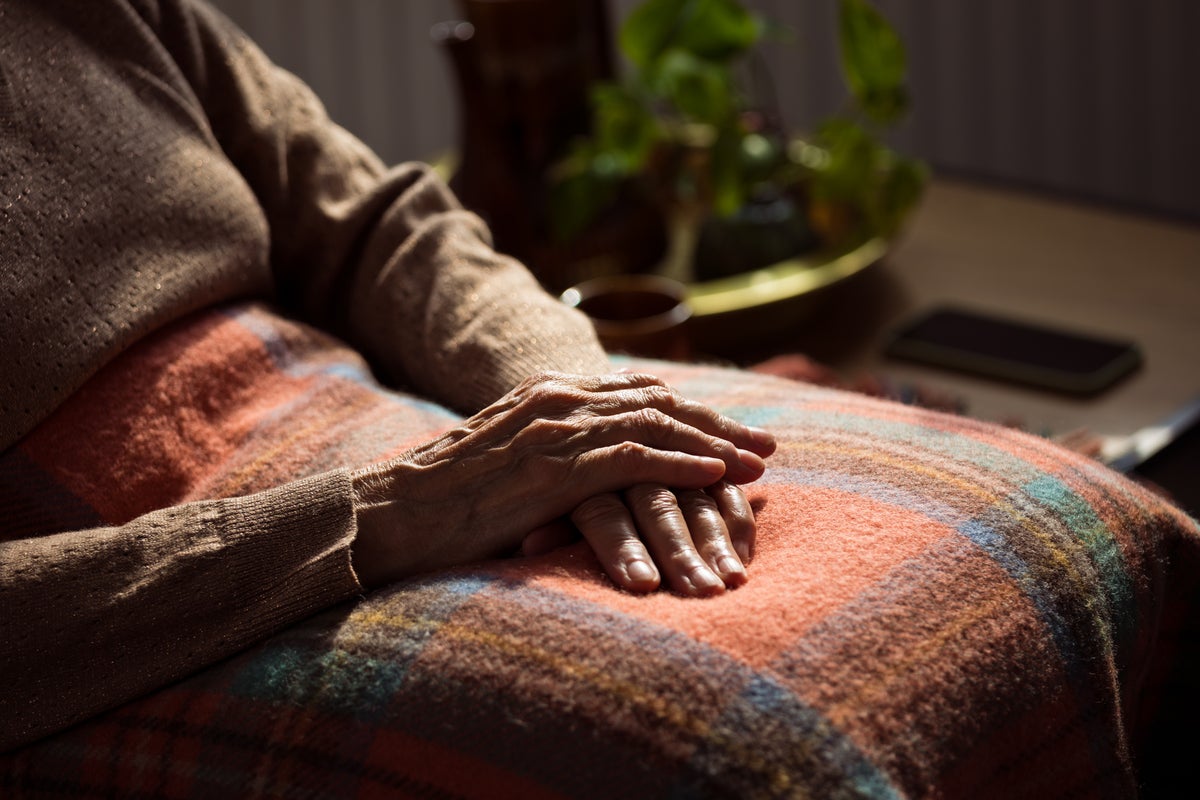Hundreds of thousands of older people are struggling to cover the cost of essentials, a new report on the scale of pensioner poverty in the UK has revealed.
Over half of pensioners on a low income (54 per cent) say they find it difficult to keep up with bills, research by the Living Wage Foundation (LWF) has found.
The charity adds that 35 per cent are relying on benefits, or money from friends and family to get by, as basic incomes are no longer enough to afford the basics.
This is especially pronounced for renting pensioners, with nearly a quarter (24 per cent) falling behind with bills, being unable to afford heating or food, or taking out loans to cover the essentials.
Katherine Chapman, director of the LWF, said: “These findings show the tough reality for too many pensioners who, after a lifetime of work, are still left without enough to live on.
“No one should be worrying about putting the heating on when it’s cold or boiling the kettle for a cup of tea. The good news is, there’s a simple way that employers can play their part in tackling pensioner poverty.”
The LWF’s report also found that:
- Living standards have dropped, with nearly half of retirees (48 per cent) saying they have had to cut back on hobbies and entertainment
- Around two in five of low-income pensioners (42 per cent) said they considered themselves to be middle- to high-earners for most of their working lives, with a similar proportion saying that they are struggling more than when they were working.
- Most pensioners are reliant on the state pension, with more than half (54 per cent) having no workplace pension to draw on.
Sheila, a pensioner in her eighties, said: “It’s tough, really tough. Everyone thinks older people are all rich, but it’s just not true. I’ve not turned my heating on for three years.”
“The hardest trade-offs have been between heating and eating because that’s what it comes down to in the winter. When something breaks, the boiler, fridge, or I need a new pair of shoes, I panic, because I know I can’t just replace it. “
“I would say, we pensioners are not asking for luxuries, we just want enough to get by. We worked, we paid in, and now we’re left to struggle.”
The LWF has called on businesses to take up its living pension accreditation, a voluntary savings target for employers to help workers build up a pension pot that will provide enough income to meet basic needs in retirement.
It is based on a yearly contribution of 12 per cent of all earnings to an employee’s pension pot, or £2,950 of savings in 2024/25, with no more than 5 per cent coming from the employee.
Around 2 million pensioners in the UK are estimated to be in poverty, according to Age UK, a figure which is believed to be quickly rising.
Responding to the LWF report, Caroline Abrahams CBE, charity director at Age UK, said: “Higher living costs are hitting every household, but we know that many older people on low or modest fixed incomes find it all but impossible to cope with the constantly rising prices for essentials like food and energy.”
Last year, the Resolution Foundation estimated that £100,000 would be needed on retirement to supplement the state pension and provide a minimum income standard.
The influential think tank first backed the living pension policy in 2021, when it was led by current pensions minister Torsten Bell.
Responding to the LWF’s findings, shadow work and pensions secretary, Helen Whately, said: “The figures are deeply concerning. No one who has worked hard all their life should be left choosing between heating and eating in retirement.”
“In government, the Conservatives introduced the triple lock, and lifted many pensioners out of poverty; however, since Labour’s election and consequent economic failures, leaving inflation spiralling, too many older people are struggling to make ends meet – especially after their cruel decision to cut winter fuel payments for last winter.”
The report comes after the Work and Pensions committee called for a national strategy to tackle pensioner poverty in July.
Alongside recommending a strategy to increase pension credit take-up, the cross-party group of MPs said that the government needs to set and ensure a minimum level of retirement income, and create a plan for every pensioner to reach that level.
Commenting at the time, committee chair Debbie Abrahams said: “Poverty is insidious. It isolates, damages health, and strips you of dignity. After decades of contributing to society, dignity in retirement is the least you deserve.”
“But too many are forced to make sacrifices that will accelerate their ageing because they don’t have enough to live on.”
“Faced with a combination of high energy costs, ill health and ever higher rates of pensioners in more costly privately rented accommodation, tackling pensioner poverty is not simply a DWP issue. So, we’re calling for a nationwide, cross-government strategy for an ageing society that should be rooted in equity and wellbeing.”
A DWP spokesperson said: “Supporting pensioners is a top priority, and thanks to our commitment to the triple lock, millions will see their yearly state pension rise by £1,900 this parliament.
“We have also run the biggest-ever campaign to boost pension credit take-up, with over 57,000 extra pensioner households being awarded the benefit, worth on average around £4,300 a year.
“To ensure tomorrow’s pensioners will not be poorer than today’s, we are reviving the Pensions Commission to tackle the barriers that stop too many people from saving.”

